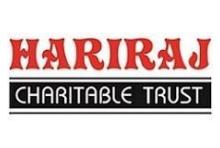Profil de l'organisation
HARIRAJ CHARITABLE TRUST
Amreli, GujaratProviding accessible education, working for gender equality and empowering the community to manage sustainable resources, promoting natural balance to enhance well-being and livelihoods for all.
Established in 1993 by social workers Mr. Nayanbhai Gandhi, Pushpaben Patel, Surshbhai Gohil, and Dhirubhai Vagadia, Hariraj Charitable Trust is a grassroots organization dedicated to improving the quality of life of economically deprived communities. With over three decades of experience, the organization works across health, education, livelihood development, natural resource management, environment, and agriculture. Our primary focus is on empowering youth from the unorganized sector, ... Lire la suite
Comment fonctionnent les dons
Cliquez sur le bouton « Faire un don maintenant », puis décidez du montant de votre don. Vous serez alors dirigé vers le traitement de paiement de votre choix. Une fois votre don traité, il sera envoyé à l’organisme caritatif de votre choix.
Besoin d’aide ?
Consultez la liste des questions fréquemment posées ou contactez le support.



